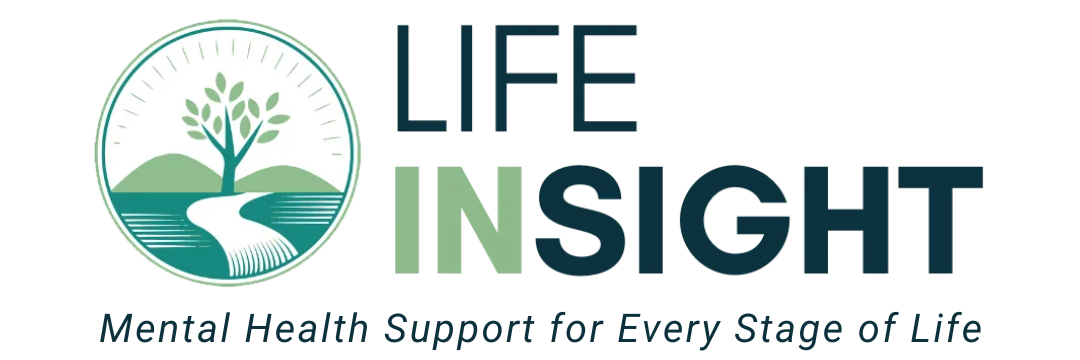The Influence of Social Media on Self-Esteem in Youth and Young Adults
For many people, social media is a constant presence in their daily routines. It offers opportunities for connection and discovery, but it also brings unique challenges—particularly when it comes to self-esteem. Sara Costello, LCSW, a licensed clinical social worker at Life InSight in Cresskill, NJ, has extensive experience working with young people and their families to address the impacts of social media. She offers insights into how these platforms shape self-perception and strategies to help teens and young adults navigate them more healthily.
The Echo Chamber Effect
Social media can affect self-esteem by creating an "echo chamber" through its algorithms. These algorithms monitor what people engage with and then keep showing them more of the same type of content. It might feel tailored to you, but it often amplifies certain feelings or thoughts—sometimes for the better, but often for the worse.
"Algorithms can sometimes reinforce insecurities by showing content that aligns with an individual's negative self-image," explains Sara Costello. "For instance, a teen who already feels self-conscious about their body might start seeing more posts about unrealistic beauty standards, which can make them feel even worse."
Parents can help their children by teaching them to think more critically about what they see online and encouraging them to focus on building real-world relationships that foster confidence and a healthy sense of self-worth.
The Comparison Trap
For many young people, scrolling through social media often means comparing themselves to others. This comparison can occur in two ways:
Upward Comparison: When someone compares themselves to influencers or peers they aspire to be like. While this can sometimes be motivating, it often leads to feelings of inadequacy.- Downward Comparison: When someone compares themselves to others they perceive as "less successful" or "less fortunate." This might offer temporary relief but can foster a judgmental mindset.
"Teens are especially vulnerable to comparison because they're still figuring out who they are," Sara explains. "When their self-worth becomes tied to likes, comments, or the curated lives of others, it can lead to anxiety, depression, and a distorted sense of self."
Helping Teens and Young Adults Navigate Social Media
Sara emphasizes that while social media can negatively impact self-esteem, it doesn't have to. Parents can help their children develop healthier relationships with these platforms through mindful strategies and open communication.
"Research has shown that heavy social media use can lead to increased rates of anxiety, depression, and low self-esteem," Sara notes.
Here are some practical tips:
- Set Time Limits Together: Work with your teen to establish reasonable screen time boundaries.
- Encourage Positive Content: Suggest following accounts that promote kindness, education, or inspiration.
- Foster Real-Life Connections: Help your teen prioritize in-person relationships with supportive friends and family.
- Model Healthy Behavior: Show your teen how to use social media responsibly by practicing it yourself.
"How we mitigate the negative impacts are to limit the exposure to social media, focus on the real connections in our lives, be critical of content we are consuming, and promote positive social media use," Sara advises.
Starting the Conversation
Talking to your teen about social media can be challenging, but it’s an important way to understand its effects. Sara suggests that parents approach these conversations with an open mind and genuine curiosity instead of jumping to conclusions or judgment.
"Start by asking open-ended questions to understand how your child interacts with social media," she says. "For example, ask, 'What do you like about social media?' or 'How do certain posts make you feel?' This creates an opportunity for meaningful dialogue without making them feel defensive."
It’s equally important to acknowledge the positive aspects of social media, like learning new skills or staying connected with friends, while working together to set healthy boundaries. Sara suggests involving teens in decisions about screen time and social media use to foster trust and mutual respect.
Life InSight: Supporting Families in the Digital Age
At Life InSight in Cresskill, NJ, the team understands families' unique challenges in today's digital landscape. With years of experience supporting children, teens, and parents, Sara Costello and her colleagues offer tailored approaches to help young people build self-esteem, manage anxiety, and navigate the pressures of social media.
"Social media is here to stay, but that doesn't mean we're powerless against its negative effects," Sara says. "By creating open communication and a supportive environment, families can help their children develop the tools they need to thrive online and offline."
If your child or teen is struggling with self-esteem, anxiety, or the pressures of social media, Life
InSight is here to help. Their compassionate, expert team offers personalized services designed to support families through every step of the journey.





